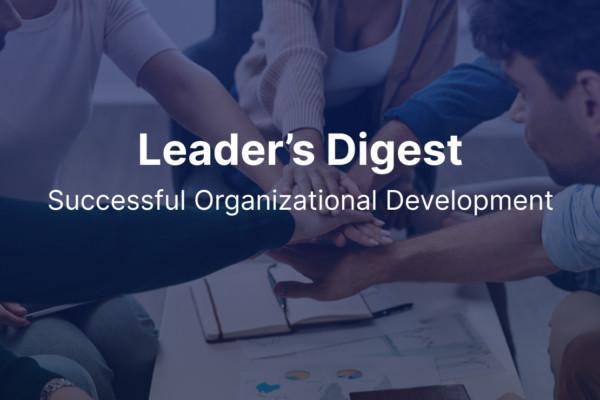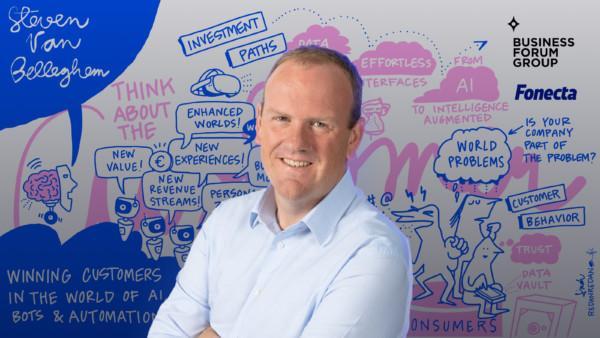10Nov2022
Our speakers had a lot to say about leadership at Nordic Business Forum 2022, but were there some things left unsaid? Some speakers were interviewed after their keynotes to dig just a little bit deeper into what they think is important for leaders, and what errors they often make. We collected 3 pieces of advice, and 3 leadership errors to this blog for you to learn from.
Leadership Advice:
Make Space for Innovation and Creativity
“How do we get big ideas on demand?” asked the former head of innovation at Disney, Duncan Wardle. We live in an environment where companies need to be innovative and creative constantly, yet this can be extremely hard to achieve. According to Duncan, the biggest obstacle to being innovative at work is not having time to think. What are the situations where you get your best ideas? Perhaps in the shower, while jogging, or staring out the window—these are the moments where you have time to stop and think, and when the door between your unconscious and conscious mind opens.
Duncan also explained that only 13% of your mind is conscious, and every innovation and creative idea you have ever had is back in the unconscious part of your mind. When the door is closed, you can’t access it. Playfulness, laughter, and having fun help you get into the right state of mind to have big ideas even at work.
Additionally, corporate anthropologist Jitske Kramer calls for liminal leadership to create space for new ideas. This involves training people to be able to facilitate and navigate the in-between spaces of organizations, groups, and relationships. Sometimes that type of leadership isn’t truly facilitated and we don’t make time for it. But, if we want to go through the changes and problems we are facing, more liminal leadership is needed.
Take Care of Your People
Zoe Chance, a Yale professor and author, makes an important distinction between management and leadership: “I see management as the job of influencing other people, and leadership as the job of empowering other people to be influential.”
On that note, Jitske thinks that it is important for leaders to take care of their people. To do so, she introduces two forces: power and love. “Leaders need to create the space and put the power in place for things to change if they need to change,” she says. It is the balance between power—dopamine—and love—oxytocin and connection. People need to feel that they can do things together, and leaders are responsible for creating and holding the space for that to happen.
Develop as a Global Leader
When you work internationally, how should you act? Should you adapt to the communication styles of the cultures and nationalities you are working with, or should you be your authentic self? INSEAD Professor Erin Meyer says that you should be both.
She gives an analogy of using your left and right hand to explain her advice. Your dominant arm will have a stronger muscle and you will be more likely to respond with that arm, but that doesn’t mean you shouldn’t use and develop the strength on your other arm. You easily respond to situations by being your authentic self, but by learning other techniques to adapt to the different cultures we work with we can get the results we need.
What I’ve really found is that global leaders know their authentic style and they’ve developed the muscle in their left hand, so they have a choice. – Erin Meyer
Leadership Errors:
Always Going First
Amy Edmondson, a pioneer of psychological safety, introduced a significant error most leaders make: they go first. By going first and explaining your view and opinion, you might create inhibition in others to say something different. This limits creating new ideas, solving problems, and having fruitful discussions in your team. Amy says that whatever the situation, you should take a deep breath, slow down, and think first before you react.
Not Taking Risks
Organizations need to be innovative and to be innovative, they need to take risks. Russian political activist Garry Kasparov highlights that we are living in a time of great change that affects all aspects of our life. Therefore, taking calculated risks is the only way to stay on top of your game.
Amy as well emphasizes that taking risks is more important for organizations than it’s ever been, because innovation is more important than it’s ever been. She adds that taking risks and being bold also involves accepting that sometimes it will not go well, and those failures need to be accepted. Not only regarding innovation, but leaders also have to take interpersonal risks in order to communicate clearly and to get the help they need to do their jobs well.
Not Learning from the Past
Garry gives a final, extremely important note of how we view the past. Regarding the current global crises, he says that the biggest mistake that was made was the unwillingness of political leaders and the general public to learn from the past. If we would have done so—he argues—many things happening now could have been avoided.
If you want to see the first episode of Behind the Keynotes, you can view it here:

 by:
by: 
